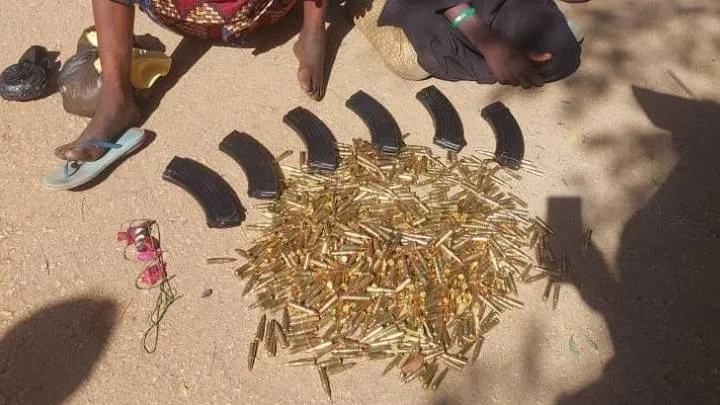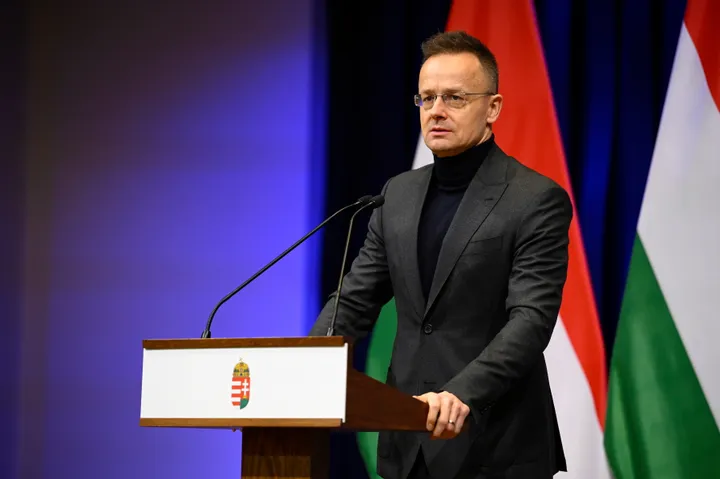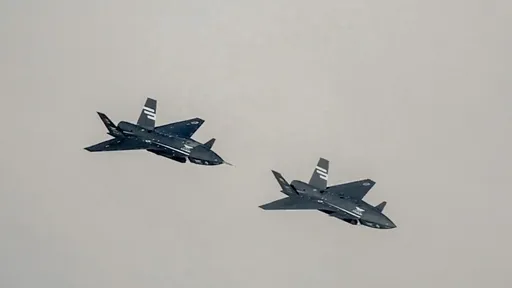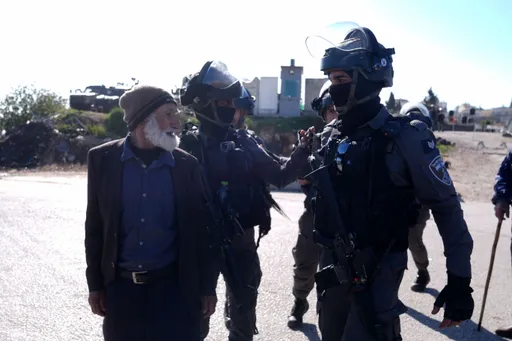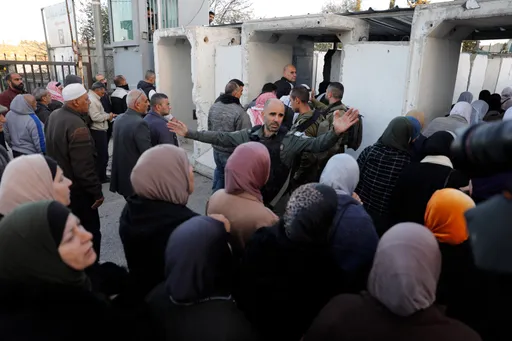Kolkata, India — India’s dominant Hindu nationalist Bharatiya Janata Party (BJP) had a woeful Sunday after being defeated in three key state elections.
Three of four major states of India – with about 20 percent of the country's population – voted against the BJP, led by Prime Minister Narendra Modi, on Sunday afternoon.
The southern Indian state of Kerala re-elected the Left Democratic Front (LDF), defying a four decade-long record of alternating between leftists and centrists.
The Nipah virus attack of 2018, the two floods in 2018 and 2019, were followed by a couple of state and nationwide Covid-19 outbreaks in 2020 and 2021. In the end, it helped the Communist Party of India-Marxist (CPI-M) led LDF.
“The chief minister Pinarayi Vijayan guaranteed a smooth supply of very good quality food through an efficient public distribution network, not as alms but as people’s right to food, it ensured LDF’s successive victories,” Kerala journalist and political commentator Gouridasan Nair told TRT World.
In the other southern state of Tamil Nadu, the anti-right and social justice-driven secular Dravida Munnetra Kazhagam (DMK) defeated the BJP and its local ally.
BJP was apprehensive of its victory in the eastern state of Assam, owing to a controversial citizenship law passed in national parliament in 2019 that unnerved both its Muslims and the ethnic majority.
However, BJP bagged Assam with its local allies.
Defeat in West Bengal
BJP encountered the most emphatic defeat in the other eastern state of West Bengal, the fourth most populous province of India, where Muslims make up about 30 percent.
Besides Kerala, the BJP has never won West Bengal since India’s independence in 1947.
While it bagged more than 70 seats – its highest ever – the incumbent All India Trinamool Congress (AITC) won more than two-thirds majority in the 294 member state legislative assembly. AITC got nearly 48 percent of popular votes, the highest ever by the party.
Political observers cited several reasons for the BJP’s defeat.
“It would always be difficult for the BJP to win Bengal. Out of every 100 voters 70 are Hindus and 30 are Muslims. BJP would not get Muslim votes and thus they will have to extract 40-45% of the votes to win an election from 70 Hindu voters, it is a tall ask,” senior journalist and political commentator Debasish Bhattacharya told TRT World.
The lack of BJP’s organisation at the grass roots level in Bengal and “direct cash and services transfer schemes” by the state’s ever-competitive chief minister Mamata Banerjee, were cited as another drawback for the BJP.
Interestingly, a sizable period of Bengal’s politics was dominated by the Communists and the Congress, who formed an alliance in 2021, but failed to win even one seat for the first time.
The middle space, occupied by the left and the Congress, is squeezed out, said Ranabir Samaddar, a noted political scientist.
“The janus-faced left’s progressive faction went to AITC, while the power-loving and regressive section of the left went to the BJP, leaving the left dry,” Samaddar told TRT World.
Between 2014 and 2019, according to the national poll of India, the BJP’s vote share in Bengal shot from 17 to 40 percent, while the Communists’ Hindu vote dropped from 29 to 6 percent, indicating a 23 percent gain for the BJP at the cost of the left.
The independent Election Commission of India (ECI) planned an unprecedented eight-phase election deploying thousands of companies of central semi-military forces.
“ECI is shamelessly and illegally conducting polls in Bengal being guided by the BJP as they are desperate to win Bengal,” alleged Sukhendu Sekhar Roy, an AITC parliamentarian. The allegation was denied by the BJP and the ECI.
Prime Minister Modi addressed nearly two dozen public rallies, while his deputy, Home Minister Amit Shah, “was on the campaign trail for 12 of the first 18 days of April,” noted The Economist. The top ministers of Mr Modi’s cabinet and the flag bearers of the Hindu right – like the Uttar Pradesh chief minister Yogi Adityanath – campaigned extensively in West Bengal.
They “have held countless huge rallies during a weeks-long campaign, without masks or any form of social distancing,” reported The Economist. The western press criticised BJP’s relentless political campaigning in West Bengal, neglecting the impending health crisis.
“Even with cases soaring and more and more people dying across India, Mr. Modi and other politicians held enormous rallies up and down the state, which critics said helped spread the virus,” noted New York Times on Sunday.
As of Sunday, India reported its highest daily toll of 3,689 deaths and nearly 400,000 daily infections.
Sanjeeb Mukherjee, a political scientist, told TRT World people rejected Modi and Shah’s “excessive and aggressive campaigning” in Bengal.
The return of Covid-19 has cast a shadow on the projected double digit GDP growth in 2021-22 on the back of last year’s contracting economy.
Has the pandemic-driven crisis, along with previous countrywide agitations against citizenship and farm laws - and now Sunday’s defeat - bolstered the possibility to stitch an anti-BJP coalition together?
A future anti-BJP coalition?
India’s only female chief minister, Mamata Banerjee, may emerge as the face of that coalition, as deeply fragmented as India might be.
Two other winners on Sunday – Mr Vijayan, who leads the LDF in Kerala and the chief of DMK, M K Stalin – belong to a staunch anti-BJP bloc of Indian politics.
Yet an anti-BJP combo is a distant political project due to “irreconcilable differences” of a diverse group of non-aligned parties, said Mr Nair.
“An alliance with Banerjee, a rival of the left, and the leftist Vijayan, is a strict no-no, at this stage.”
India has a history of diverse political parties uniting to dislodge prime minister Indira Gandhi of Congress in 1977 and more recently a charismatic Atal Bihari Vajpayee of the BJP in 2004. However, an attempt by Ms Banerjee to unite parties with deep differences in 2019 against a high-handed Mr Modi, collapsed.
“Nothing is expected to take shape before next year’s Uttar Pradesh (India’s largest state) election, as Congress’ Priyanka Gandhi is taking personal interest to resurrect her party. Everyone will await and watch Congress’ role in Uttar Pradesh before they take the plunge against Modi,” noted Mr Nair.
Mr Samaddar describes the coalition formation as “a giant knot” of Indian politics.
“Congress played a pivotal role earlier (in 2004) to weave an alliance but it is reduced to the level of a regional party. However, it cannot accept it, as it still governs a few states,” he explains.
Congress has a small presence in India’s national parliament and yet governed the country for decades – unlike the younger parties – and thus has its own ego. This conflict between its history and its ego is referred to as “the knot.”
“The knot” stopped Congress, a party founded in 1885, from forging an alliance with AITC – which itself emerged out of Congress in 1998 – despite both rivaling the Hindu nationalists.
BJP’s survival in India depends on keeping the opposition votes divided and unless Congress and the regional outfits can forge an alliance before the 2024 national polls. Defeats in a handful of state elections will not dislodge the Hindu nationalists at the centre.
Sooner the central and local parties take a note, the better the chances are for an anti-BJP coalition.



